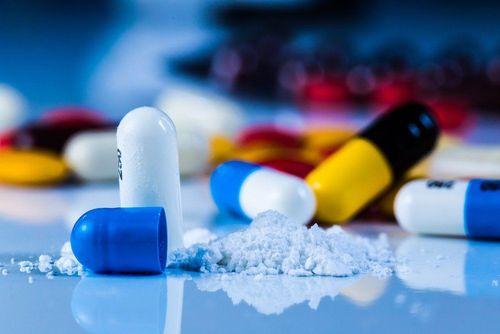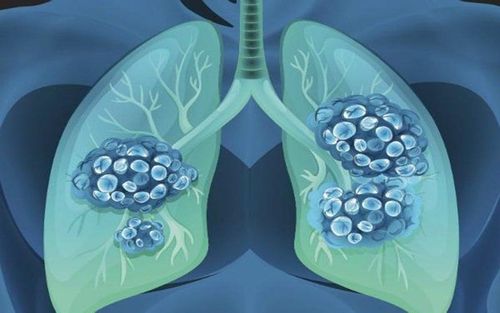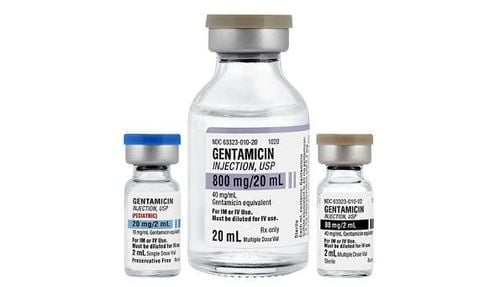This is an automatically translated article.
The article is professionally consulted by Master, Doctor Phan Ngoc Toan - Emergency Medicine Doctor - Emergency Department - Vinmec Danang International Hospital.Multi-organ failure due to septic shock is an acute condition, failure of 2 or more organs and this condition persists for 24 hours or more, causing great danger to the patient's life. Therefore, for multi-organ failure emergency to protect the patient's life, it is necessary to treat actively and quickly with emergency dialysis, otherwise it will easily lead to the risk of death in the patient.
1. Multi-organ failure
Multi-organ failure is defined as the acute state of a disease in which 2 or more organs in the upper body fall into a state of failure and this phenomenon occurs and persists for at least 24 hours. Multiple organ failure may be non-infectious or due to infection, also known as multi-organ failure due to septic shock. Septic shock is considered as one of the very severe stages of a pathological process, starting from the inflammatory response that takes place inside the body when an infection occurs until the patient falls into a serious condition. Severe infection, then septic shock, and finally, multi-organ failure. According to studies in the world, multi-organ failure due to septic shock is very common in cases of multi-organ failure, accounting for about 60% - 81.5%.
The common cause of multi-organ failure due to septic shock is sepsis from a number of organs as follows:
The foci of infection in skin and soft tissues or infections in muscles and bones or joints of the body Sepsis can also come from the digestive system, typically such as gastroenteritis, infection and abscess - biliary tract, acute pancreatitis, abscess - liver abscess...

Diseases of respiratory tract infections such as pneumonia, bronchitis, empyema, lung abscess... Urinary tract infections include inflammation, pus stasis in the renal pelvis or bladder. Focal infections in the nervous system in diseases such as meningitis or brain abscess - Acute and subacute endocarditis. In order to accurately diagnose a patient with multiple organ failure due to septic shock, it is necessary to rely on clinical and laboratory signs as follows:
Clinical symptoms: Include 2 or more of the following symptoms :
High fever over 38°C or body temperature below 36°C Tachycardia, rate greater than 90 times/minute Tachypnea, rate greater than 20 times/minute Increased white blood cell count higher than 10000/ml, or fall below 4000/ml. Immature white blood cell count greater than 10% There are signs of serious infection such as systemic inflammatory response syndrome, detection of infection in the body, dysfunction of some organ systems in the body. If the blood lactate index is 2 or more, the body experiences oliguria with a measured urine volume of less than 0.5ml/kg/hour. Some manifestations of multi-organ failure due to infectious causes such as manifestations of severe infection, septic shock, altered and unbalanced functions of some organ systems, organs are assessed for failure with the following: SOFA scores in multiorgan failure.

Subclinical: The white blood cell count is increased by more than 10000/ml. The rate of NEU is high. The percentage of leukocytes is greater than 10%. CRP index is higher than 0.5mg/dL Procalcitonin index is higher than 0.125ng/ml Blood cultures to identify bacteria and parasites Blood lactate index increased by more than 2mmol/l Urea and creatinine index increased higher than 130μmol/l when patients with renal failure PaO2/FiO2 usually lower than 300, if respiratory failure is severe, the rate This number can fall below 200 GOT, GPT, Bilirubin in the blood is elevated when the patient has liver failure The platelets drop sharply Occurrence of blood clotting disorders Increased blood potassium levels Metabolic acidosis Risk factors that make possible The possibility of multi-organ failure due to septic shock increases, which is:
The patient has a very serious medical condition. Patients with major trauma Elderly patients (< 65 years of age) Patients with severe sepsis or infection at the outset Patient experiences a prolonged drop in blood pressure for more than 1 day after was actively treated in the intensive care unit. The patient was hypoxic after anti-toxic resuscitation. The patient underwent major surgery for a long time.

2. Is multi-organ failure dangerous?
In septic shock, pathogenic bacteria, viruses, and parasites enter the body and trigger a systemic inflammatory response, or SIRS, which releases a substance called a substance called SIRS. Cytokines have inflammatory properties as well as imbalance between inflammatory factors as well as anti-inflammatory factors in the body. Therefore, septic shock easily leads to damage to other organs in the body, gradually creating a series of damaged organs, so it is called multi-organ failure due to septic shock.Multi-organ failure due to septic shock is one of the leading causes of death very high, according to statistics, this condition causes 11 times more deaths in patients than other diseases, in which in In the intensive care unit, multi-organ failure due to septic shock can be fatal in 40% to 60% of cases.
3. First aid for multi-organ failure
To treat multi-organ failure, one of the first-choice methods today is emergency dialysis. This is a measure that allows the elimination of toxins secreted by pathogenic bacteria that cause severe infection as well as septic shock in the patient. Emergency dialysis is a blood purification system based on an artificial circulation outside the patient's body, conducted continuously throughout the day to be able to remove all toxins in the patient's body. This method works based on 2 main mechanisms, convection and ultrafiltration, the success rate investigated in clinical practice is 95% and the patient is detoxified in a very fast time, with the ability to recover. health later and prevent the risk of death from multi-organ failure and septic shock.

4. Conclusion
Multi-organ failure due to septic shock is an extremely dangerous medical emergency for the patient's health. If not detected and treated as quickly as possible, the patient will face many more serious risks, including death. Currently, emergency dialysis is considered the most effective and quick treatment for this emergency.
Currently, the emergency dialysis technique for patients with multi-organ failure is being applied at Vinmec International General Hospital. With a system of modern machinery and a team of highly qualified and experienced doctors and nurses, Vinmec is committed to the best protection for patients' health.
Vinmec uses a modern, new, multi-featured machine system. Fresenius multiFiltrate continuous dialysis machine with many outstanding advantages. The team of doctors and nurses are skilled, experienced technicians and have been trained in this technique very intensively, with a lot of experience in handling critical patients, providing support and assistance. coordinate with departments in the hospital to treat severe and complicated patient cases.
Please dial HOTLINE for more information or register for an appointment HERE. Download MyVinmec app to make appointments faster and to manage your bookings easily.














